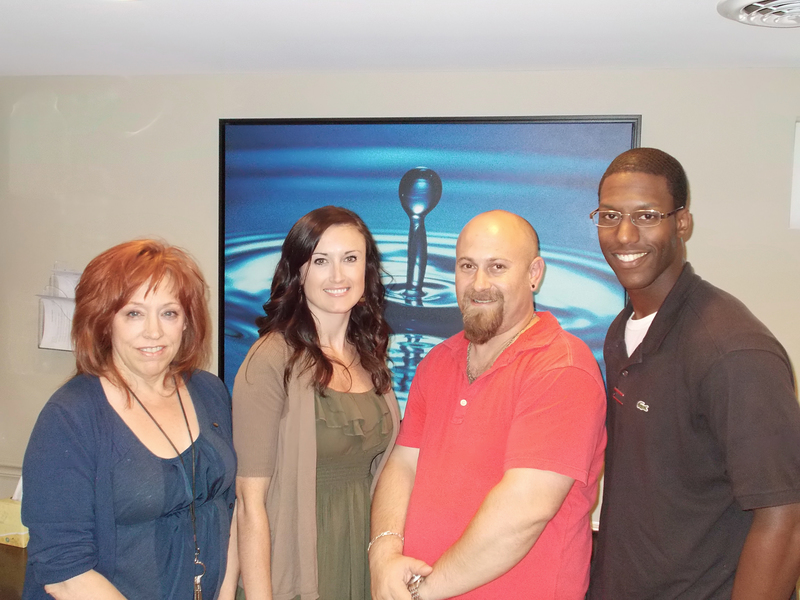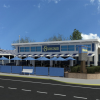Cape Region clinic offers addiction services
John walks into the offices of AMS Delaware near Rehoboth Beach every morning at 8 a.m.
He isn't there for a social call; he is there for his daily dose of methadone.
"I started using when I was 14 or 15 years old," John said. "It started with alcohol, to fit in and be cool. It eventually turned into a monster."
John, who now lives in Lincoln, had moved on to prescription pills and heroin before he landed in prison for stealing to support his drug habit.
Addiction is a powerful master, but the professionals at AMS of Delaware near Rehoboth Beach say they have some answers for Cape Region addicts.
Since it opened two years ago, AMS has offered medication-assisted treatment, counseling and support for patients dealing with addiction to prescription pills, heroin and other drugs, said Richard Ruby, executive director.
Ruby said a treatment facility is often stigmatized – neighbors often think it will spark an influx of addicts trying to get access to drugs – but he said since AMS opened, the location has received no complaints.
"No one wants a treatment facility in their backyard, but at the same time, the alternative is costly," Ruby said. "If patients don't receive treatment, they will end up being housed in prisons where there is no therapy at all. Programs like AMS help reduce crime and reduce the spread of diseases."
Ruby said by offering addicts drug-based treatment, such as methadone, suboxone and subutex, the addicts are able to function in society.
"Our philosophy is harm prevention," Ruby said. "We are not going to kick someone out if they are found using during a urine screen. We are here to help them with that addiction."
John said AMS has helped him.
"At 34, I'm just starting to get help," said John, whose full name has been withheld to protect his privacy. "AMS is making me a better person. I'm not breaking the law anymore. I don't have to wake up in the morning and depend on anything to get my day started."
John, who was unable to hold a job or develop positive relationships while on drugs, said he now works full-time and is living with a roommate.
"I had to cut off relationships because you can't be around people who aren't doing well," John said. "People like that drag you down."
He describes the transition as starting an entirely new life.
Amy Leonard, a counselor at AMS, said many patients would agree with John.
She said patients start using prescription drugs to control pain after an accident or surgery, Leonard said.
"Before they realize it, they have become addicted to the pills," Leonard said. "Once they are addicted, their brain changes, and their bodies tell them they need more to be chemically balanced."
Her patients are from all walks of life, from young students to older career professionals.
"When we first opened, most of my patients were addicted to prescriptions," she said. "But in the last year, we've had an influx of heroin patients because of a crackdown on prescriptions."
Ruby said in 2011, about 60 percent of AMS's patients were seeking help with prescription pill addiction, while 40 percent sought assistance to get off of heroin. Today, about 45 percent of the patients are addicted to heroin, Ruby said. AMS has served 459 patients in two years.
AMS is the only outpatient drug treatment facility in the Rehoboth area; nursing supervisor Powell said when AMS opened, many patients were on a six-month waiting list for a Kent-Sussex treatment program.
Each patient's treatment plan starts with three to six months of stabilization, which could include medication.
After a patient is stabilized, Leonard said, most patients are ready to move forward and start setting goals.
In John's case, for the first time in nearly a decade, he is considering his goals.
"I'm 34, and I haven't gotten anywhere yet," John said. "Hopefully by the time I'm 40, we can start talking about some accomplishments."
All of AMS's services are pay-as-you-go; insurance carriers may reimburse a patient for costs, but AMS does not work with insurance. The admission fee to begin treatment is $100 and there is a weekly fee of $90, or $14 daily. Patients are also charged a fee based on the dosage of medication received.
AMS is state-licensed and internationally accredited through the Commission on Accreditation of Rehabilitation Facilities, known as CARF International.
AMS, a member of Addiction Medical Solutions, has locations in Florida, Wisconsin and Maryland.
The Delaware office is at 20468 Coastal Highway, Suite 101, Rehoboth Beach. For more information or to make an appointment, call 302-227-1320 or go to www.amsdelaware.com.





















































